TurboWash3D™ technology
Creates a powerful water flow that causes clothing to rub against each other for a deep, thorough clean without beating and excessive vibration.
LG SmartThinQ™ technology
Download the free app onto your Android or iOS device, and time management becomes simple. Get alerts on your smartphone the minute clothes are clean, and control key washer features from anywhere, at any time.
You can also start a load of wash with a simple voice command since LG SmartThinQ appliances work with the Google Assistant and Amazon Alexa. Count on LG to give you a helping hand when you need it most.
ColdWash™ technology
Using the cold cycle on your washer doesn’t have to mean compromising. The ColdWash technology uses cold water and enhanced washing motions to penetrate deep into fabrics, giving you cold water savings with warm water performance.
Large 5 cu. ft. capacity
With this one of the largest-capacity top-load washers in its class* at 5.0 cu ft., you can fit a comforter and full set of king-size bedding in a single load.
6Motion™ technology
Get your clothes clean, and experience a smarter way to wash with the innovative 6Motion technology. Each wash cycle combines up to 6 different wash motions to provide a revolutionary cleaning experience.
Tub Clean cycle
Designed for easy, periodic maintenance to keep your washer fresh. The cycle uses water jets to clean the wash tub and door, and an air dryer removes excess moisture, helping to keep your high-performing washer in excellent condition.
TrueBalance™ anti-vibration system
You shouldn’t know your washer is on from the next room. The LG TrueBalance anti-vibration system is devised to reduce washer noise and vibration for smooth, quiet performance in any room of the house, even if it’s on another floor.
LoDecibel™ quiet operation
There’s no need for laundry to be noisy. The LG LoDecibel motor: chances are you may not even notice it.
SlamProof™ glass lid
Enjoy the convenience of a clear lid that allows you to watch your washer in action, uninterrupted. And closing it is safe and quiet thanks to the smooth-operating hydraulic hinge.
EasyDispense™
No need to watch the clock while you wash. EasyDispense takes the guesswork out of doing laundry by allowing you to pour in your detergent, bleach, and fabric softener all at once while releasing them at just the right time.
Wi-Fi capable with remote start
Monitor your laundry remotely with an ingenious smartphone app. You can stop or check the status of your running wash anytime, anywhere.
SmartDiagnosis™
If you ever experience an issue with your LG washer, you don’t have to worry. The SmartDiagnosis feature helps the service center diagnose problems over the phone or with a simple app on your smartphone, helping you minimize costly, inconvenient service calls.
Direct-drive motor 10-year limited warranty
When you buy a washer, you want something reliable that you can count on. Because the direct-drive motor uses fewer moving parts and operates more efficiently, LG confidently backs the motor with a 10-year limited warranty.
ENERGY STAR® certified
When your washer uses about 30% less energy and half the amount of water used by regular washers, you’re going to make an impact – on your utility bills, your energy and water consumption, and most importantly, the environment.
Proactive Customer Care
Proactive Customer Care gives you recommended maintenance tips and usage reports to help keep your appliances running at their best. Plus receive alerts for potential problems before they arise.

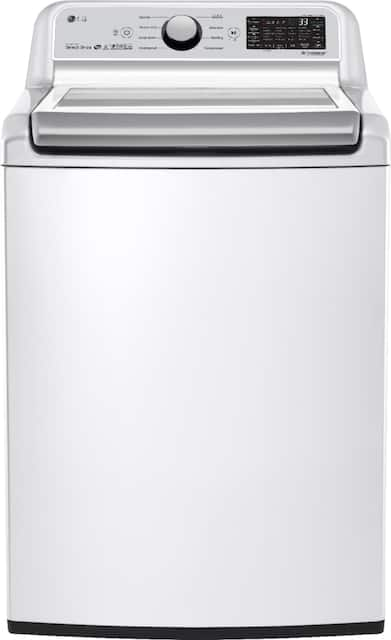
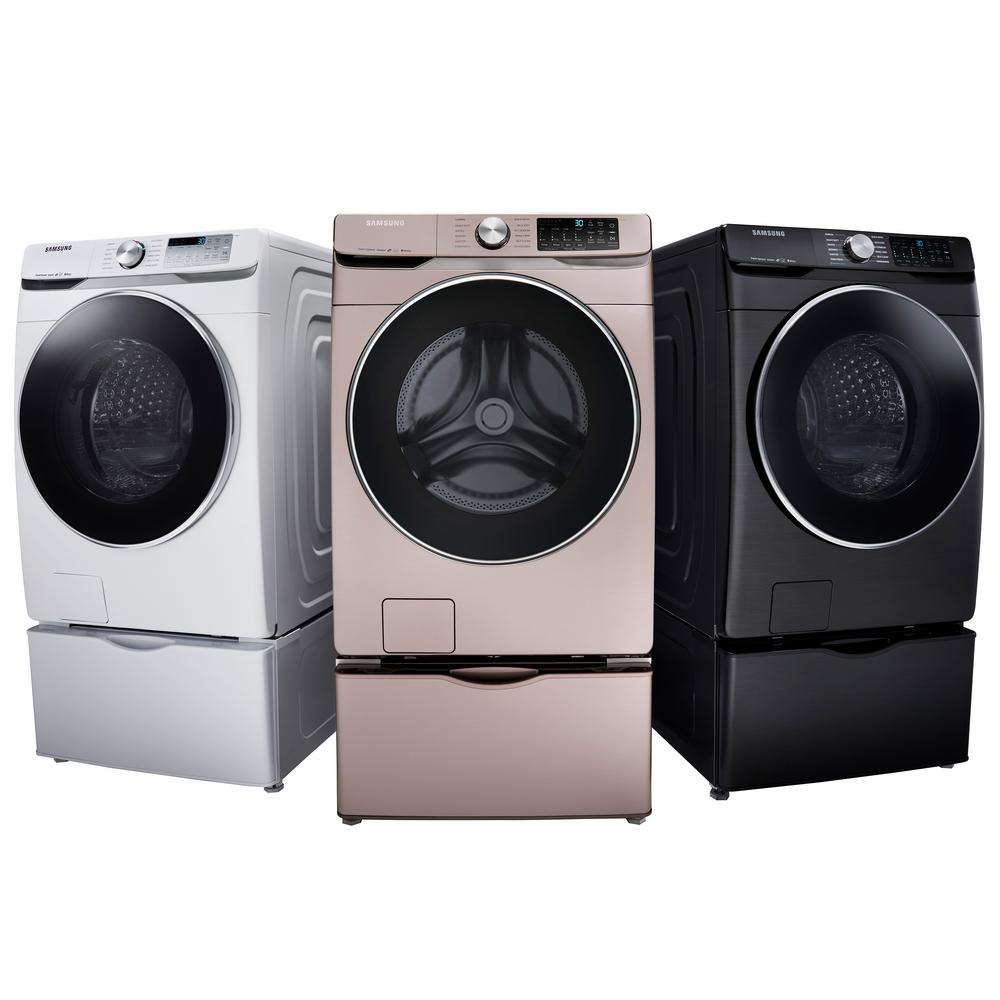
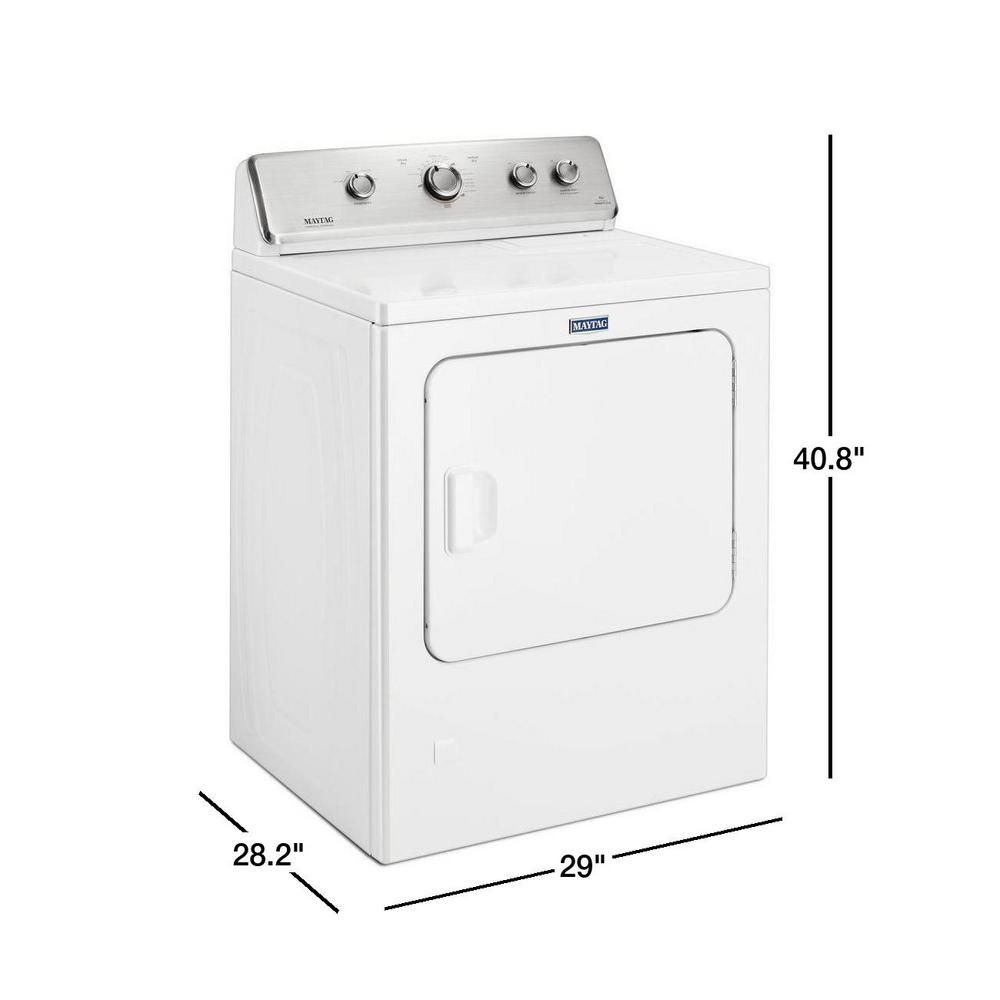
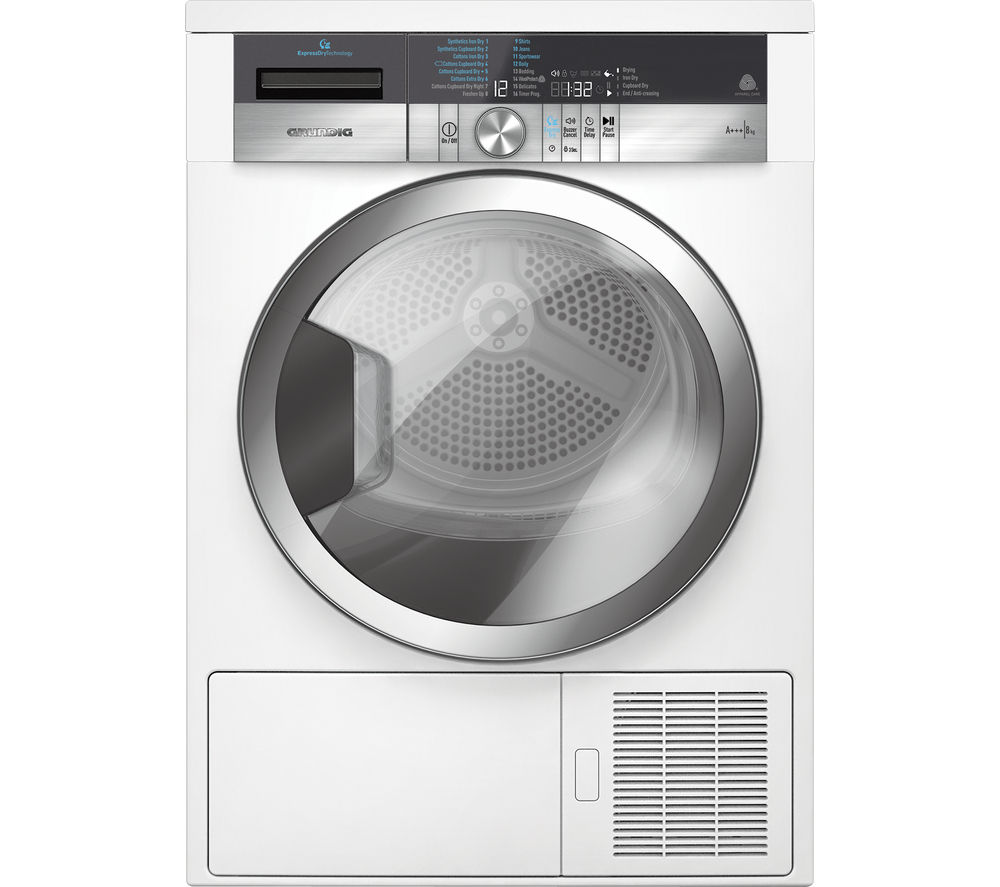
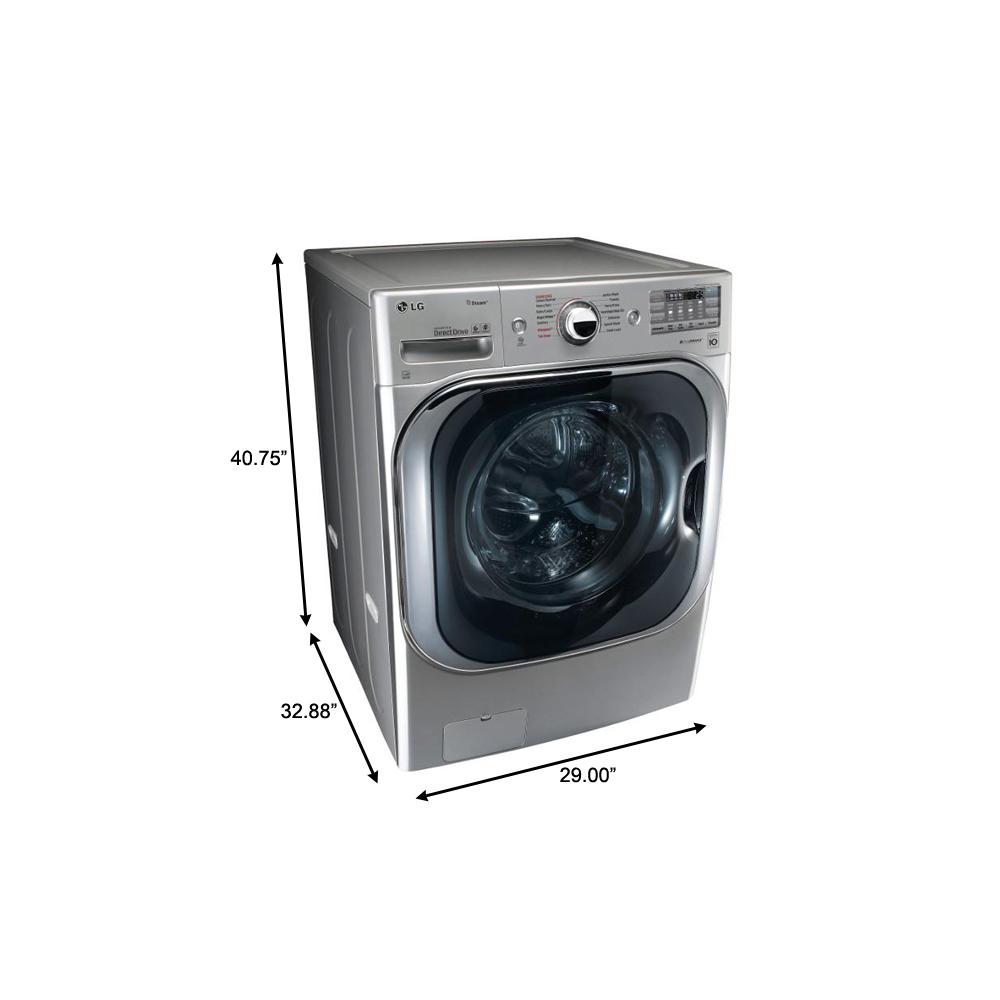
by Amanda
So far this thing has greatly improved my laundry experience. From the way it senses how much water to use to how well it cleans compared to my last washer, it is a win for sure.
by Bento
Great Washer, it has a large drum for tons of laundry, and the cold water setting is a great feature.
by Michael
My wife is really happy with this washer. That one has a big capacity for clothes and smart functionality to wash, It doesn’t make any noise too.
by Cathy
It holds a lot more, and is gentler when washing items. I’ve been able to wash large blankets that couldn’t fit in my previous washer.
The tub is quite deep, so it might be difficult to unload for shorter people. My dream of having my 11-year-old son take over laundry duties will have to wait awhile longer.
by Kyle
The washer has been working great so far! Connected to wifi without a problem and the app provides many different wash cycles. Very satisfied.
by Julie
LG is simply the best. Clean lines, great features.
by Jojo
LG washer works great large l9ads fit well. Quite, has different settings. Can program with phone.
by Greg
Easy to use. Great cycle options and gets clothes clean.